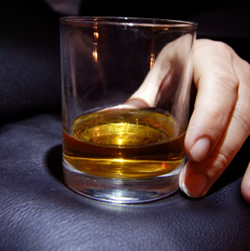Alcohol Withdrawal Treatment
Alcohol Withdrawal Syndrome Treatment

AWS treatment includes medications and proper meals to help you recover.
If you or a love one is diagnosed with alcohol withdrawal syndrome, finding proper treatment can make a difference between whether you get through the withdrawal and come out clean and sober, you relapse or you suffer serious side effects. Left untreated, alcohol withdrawal syndrome can lead to permanent brain damage or serious health side effects. Severe alcohol withdrawal syndrome that is left untreated could be deadly!
Treatment for alcohol withdrawal syndrome typically includes any of combination of the following medications:
Benzodiazepines
Diazepam or lorazepam are commonly prescribed for the treatment of mild to moderate alcohol withdrawal symptoms including anxiety and delirium tremens. These medications are often used to reduce the extreme intolerance that a drinker has to the lack of alcohol and can actually safe an individual’s life if delerium tremens symptoms are severe. Unfortunately, when benzodiazepines are used in the treatment of alcohol withdrawal syndrome there is a risk for subsequent addiction to occur and this can lead to further complications.
Antipsychotics
As a means of reducing agitation and psychosis, antipsychotic medications such as haloperidol may be prescribed in relatively moderate to severe cases of withdrawal. Unfortunately, these medications can play a role in the risk of seizures in patients who are suffering from alcohol withdrawal syndrome because they reduce the seizure threshold of the patient making him or her more susceptible or prone to seizure risk.
Anticonvulsants
In cases in which the patient is at an increased risk of seizures or from suffering from convulsions as a result of the severity of the alcohol withdrawal syndrome a doctor may prescribe anticonvulsants to reduce such risk. These medications may be used instead of benzodiazepines but research is still in the early phases for such treatment of alcohol withdrawal syndrome and there is still a need for further discovery in order to come to a final determination on overall effectiveness.
Clonidine
This medication has been proven to help suppress alcohol withdrawal symptoms and is often the chosen method of treatment for alcohol withdrawal syndrome instead of benzodiazepines such as lorezapam. Clonidine does not carry the same addictive qualities as benzodiazepines making it a much safe choice of treatment for alcohol withdrawal and the preferred method by many treatment professionals.
Nutrition
Treatment for alcohol withdrawal syndrome requires the patient to stay hydrated and properly monitored. Nutrition plays a key role in the recovery process. While it may be difficult for the patient to eat and to hold down nutrients or even water, it’s important that all nutritional elements be met in order to help facilitate detoxification and recovery. When a patient is in a residential detox or treatment facility, alcohol withdrawal syndrome may be managed using an intravenous administration of fluids and vitamins. In outpatient recovery, a daily multivitamin can help to boost nutrients that the patient is receiving in addition to proper food and drink.
